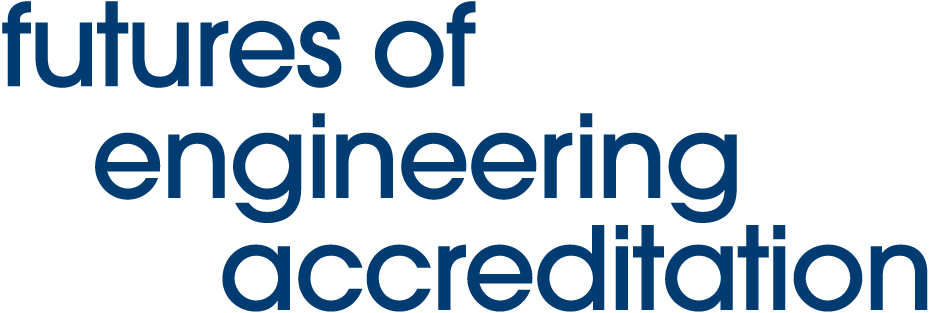Between September and November of 2023, the FEA project team travelled across Canada to meet with members of the CEAB and CEQB, regulators, and Engineering Deans Canada (EDC). The purpose of these engagements was to review draft concepts for a Full Spectrum Competency Profile (FSCP) and potential focuses for a renewed purpose of accreditation, developed by FEA’s Purpose of Accreditation and Academic Requirement for Licensure task forces earlier in the year.
If pursued, the FSCP would provide a foundation for a national academic requirement for licensure in Canada, while the renewed purpose of accreditation would clarify the function of accreditation across student, program, and regulator/licensure interests. The concepts were developed by FEA’s two volunteer task forces based on extensive prior engagement with the engineering ecosystem. Summaries of these engagements, which were held between 2022 and the first half of 2023, are available here.
About the Full Spectrum Competency Profile (FSCP)
The draft Full Spectrum Competency Profile proposes 34 competencies across eight domains that represent all competencies required of an engineer at various parts of their development— from engineering graduates to the point of licensure to experienced professional. The FSCP is discipline-agnostic, meaning it can be applied to all engineers, regardless of discipline. The FSCP enables connection between the CEAB’s Graduate Attributes to the pan-Canadian work experience competencies and can serve as the basis for establishing a national academic requirement for engineering licensure regardless of academic formation of the individual. The advantage of establishing a FSCP is that it establishes a transparent, validated knowledge requirement framework for all individuals seeking engineering licensure.
About the focuses for the purpose of accreditation
In addition to the FSCP, the team explored potential focuses for the purpose of accreditation. After examining the purposes of accreditation across other engineering accreditors from around the world and other regulated professions in Canada, the Task Force drafted three potential focuses for the purpose of accreditation: one focusing on engineering regulators, one focusing on engineering education programs, and one focusing on students enrolled in engineering education programs. The purposes expressed what an accreditation system offers to each interest holder and hypothesized that while each statement focused on one audience (regulators/programs/students), the purpose of accreditation can serve multiple interest holders at the same time.
Engagement responses to the draft Full Spectrum Competency Profile (FSCP) and renewed purpose of accreditation:
At each session, participants shared their insights and feedback on the direction of the FSCP and the focuses for accreditation. The challenges and opportunities of the proposals were explored, including impacts on the accreditation, licensure, and education environments should the proposals be further developed and implemented. The following provides an overview of the feedback that was collected during the 2023 CEAB, CEQB, regulator, and Engineering Deans Canada engagements.
Reponses to the FSCP:
Responses suggest that most participants agree on the utility of introducing a FSCP as a foundation for a national academic requirement for licensure. Participants had specific feedback about the model, including questions about methods of assessment, the inclusion and organization of the competencies, and the indicators associated with each competency.
Despite these questions, the overall reaction to the draft is deemed positive and the project team will continue its work to define the FSCP model and an academic requirement for licensure with crucial observations now in hand.
Feedback from interest holders suggests that further development of the draft is not only appropriate but necessary for them to consider adopting the FSCP and a national academic requirement for licensure.
Responses to a renewed purpose of accreditation:
Responses to draft options for a renewed purpose of accreditation reinforce that most participants view accreditation as a component of licensure, and a have a strong desire for it to remain that way. Suggestions to broaden the purpose of accreditation included an additional focus on programs and students, describing accreditation as a three-legged stool that balances interests across regulators, programs, and students.
Participants a greed there was value in clarifying the scope of accreditation and suggested that public safety should be clearly stated within it. It was also noted that fair treatment of CEAB and non-CEAB graduates in terms of applications for licensure is essential.
The project team will incorporate the important feedback received during these engagements as work on a renewed purpose of accreditation statement continues.
Final Reflections
Participants at each engagement were also asked to reflect on one thing FEA’s task forces should know as they continue this work. Responses included:
- Collaboration and trust building between interest holders is necessary and will lead to increased alignment and a more efficient system.
- It is imperative to maintain a balance between keeping what is working and removing what is no longer serving the system.
- Clarity regarding assessments for accreditation and licensure is needed.
- Licensure and accreditation systems that are fair and adaptable, and an academic requirement that works for applicants regardless of their path to licensure is needed.
- Universal criteria could be used to consistently measure the quality of international credentials.
Moving forward
The task forces are refining the concepts based on the feedback from interest holders. The Task Forces will issue their reports with recommendations to FEA’s Steering Committee to inform the final deliverable of the project – The Path Forward Report. An in-person co-design event with the Regulator Advisory Group, the project steering committee, and select members of the CEAB, CEQB, and EDC to review and discuss the progress of the work will be held in April as input to the Final Path Forward Report.
Progress updates on the project will continue to be shared here on the FEA website.
If you would like to get in touch with the FEA project team, please email us at fea@engineerscanada.ca. For comments or ideas about the project, please use this submission form, available for the project’s duration. Submissions are reviewed by the project team and collected as valuable feedback.
Sincerely,
The FEA Project Team

